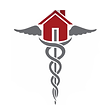Caring for an Elderly or Disabled Loved One with Incontinence
Incontinence is a common issue faced by many elderly or disabled individuals, and it can significantly impact their quality of life. When caring for a loved one with incontinence, it is essential to approach this sensitive topic with compassion, understanding, and practical strategies to ensure the comfort and dignity of your loved one.
Understanding & Managing a Loved One’s Incontinence
Various factors, including age-related changes, medical conditions, medications, and physical disabilities, can cause incontinence.
There are two forms of Incontinence, urinary incontinence (loss of bladder control) and fecal incontinence (loss of bowel control). Understanding the underlying cause is crucial for effective management.
In this ASHH article, we will share some in-home care tips and advice for effectively managing your loved one’s incontinence.
- Have Open & Compassionate Communication with Your Elderly or Disabled Loved One: If your loved one is able, start by having an open and empathetic conversation with them about their condition. Assure them that incontinence is a common issue and that you are there to support them.
- Establish a Regular Bathroom Routine: Creating a consistent daily routine can help manage your loved one’s incontinence. Encourage regular bathroom visits, even if they do not feel the urge. This can help reduce accidents and establish a sense of predictability.
- Maintaining Your Loved Ones Hygiene & Comfort: Keeping your disabled or elderly loved one clean and dry is essential for preventing skin irritation and infections. Use high-quality, absorbent incontinence products like pads, underwear, or briefs, and ensure they are changed regularly.
It is also important to thoroughly clean the affected areas with mild soap and water and apply any skin care products to protect the skin.
At ASHH, we specialize in providing in-home Bath and Hygiene care for elderly and disabled individuals.
Monitor & Encourage Your Loved One’s Fluid Intake
Encourage your loved one to drink enough fluids throughout the day to stay hydrated. However, avoid excessive intake of caffeinated and alcoholic beverages, as these can irritate the bladder and cause leakage or more frequent bathroom visits. It’s essential to find the proper balance, as dehydration can lead to concentrated urine, which can further irritate the bladder, and overhydration can lead to accidents and frequent bathroom use.
A Healthy Diet Can Help to Promote Regular Bowel Movements and Reduce Accidents
A balanced diet that is high in fiber can help manage bowel incontinence by promoting regular bowel movements. By including plenty of fruits, vegetables, and whole grains in your loved one’s diet, you can reduce accidents and improve regularity in the bathroom. Avoid foods that can cause constipation or diarrhea, which can worsen incontinence.
At ASHH, we offer Meal Planning to ensure that your loved one receives regular nutritious meals that meet their dietary needs, as well as Eating Assistance if your loved one is unable to feed themselves.
Creating a Safe & Accessible Environment for Your Elderly or Disabled Loved One
Start by removing any tripping hazards and making the necessary safety modifications to the home, installing grab bars, raised toilet seats, and ramps if needed. Be sure to keep the path to the bathroom clear and well-lit to prevent falls in the home, especially at night.
If you need guidance or assistance installing your in-home safety modifications, Contact ASHH we can answer your questions and connect you with a certified installer.
- Seek Out Medical Advice on the Behalf of Your Loved One: Consult with your loved one’s primary healthcare professional to understand the best management strategies for their specific condition. They may recommend medications, pelvic exercises, or other treatments to help manage urinary and fecal incontinence.
- Emotional Support and Encouragement: Incontinence can take a toll on your elderly or disabled loved one’s emotional well-being. It’s important to encourage participation in social activities and hobbies to maintain a positive outlook and reduce feelings of isolation or embarrassment.
- Utilize the Professional Help of All Service Home Healthcare: If managing your elderly or disabled loved one’s incontinence becomes overwhelming, consider seeking professional help. At All Service Home Healthcare, we employ a team of skilled, pre-screened, and certified in-home caregivers who are trained to manage incontinence and many other conditions that your elderly or disabled loved one.
At ASHH, we offer personalized care plans and support to ensure your loved one’s health and wellness needs are met in the comfort of their home.

